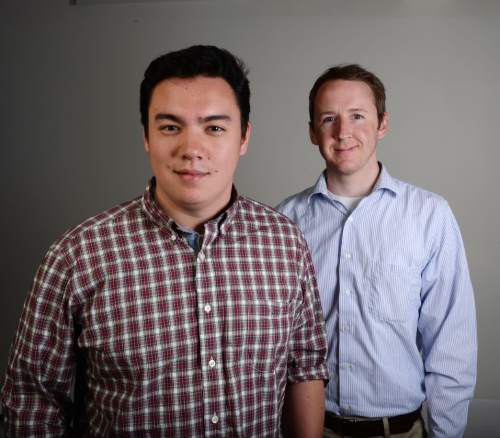This is an archived article that was published on sltrib.com in 2014, and information in the article may be outdated. It is provided only for personal research purposes and may not be reprinted.
I'll let you in on the secret before we begin: This column is really only meant for one person.
It's not that no one else can read it, or even derive meaning from it. Maybe you are one of the thousands of people in America who suffer from this surprisingly common injury.
We take our knees for granted when you really think about it. They bend for us, shift in odd angles for us, move in harmony with the music in our ears or the flutter of our hearts. We leap in the air thanks to our knees, often never worrying about what will happen when we come back down to earth.
That moment of reckoning came for my sister on the soccer field, where she's spent countless hours since she was able to walk on two feet. She's not exactly a finesse player: She's fast, but not afraid to slide tackle a fully grown man if she must.
A lot of people tear their knee ligaments by taking a step, and suddenly feeling simply wrong. This was not my sister's fate: Her ACL and meniscus were torn in a violent collision that sent her spiraling to the ground. After she landed, she couldn't get back up.
My sister had a chance to play college soccer, but opted for "student" over "student-athlete." That decision served her well: She graduated from college with a 3.9 GPA last spring and works for a prominent company in her field — one I should mention has graciously allowed her to work from home since her injury.
But she never gave up soccer: It's freedom for her. It's a world apart from her stresses and worries, where she can run free with a few of her friends. For an hour or two, life begins and ends with that turf. Any one who loves sports can relate.
I'm hardly a stranger to devastating knee injuries: I've already seen enough in the last few months on my beat at the University of Utah. All three major football programs in the state have lost a quarterback to knee problems. Utah women's basketball coach Anthony Levrets is already down two starters thanks to season-ending knee injuries, which unfortunately plays out in statistics: In general, studies show women are up to 10 times more prone to ACL tears than men.
I hear how frustrated my sister is as she awaits her surgery, dealing with swelling and aching. She hates having to ask people to help her walk or drive her around. To someone as self-reliant as she is, it's an extra layer of anguish.
I've seen one side of the tunnel, just as my sister prepares to go through a nearly year-long rehab process. Friday night, I saw the other end.
Utah's Taryn Wicijowski was back in her first official action in 16 months since her second ACL injury. She leapt among crowds of two, three, four defenders, and she cut and dribbled around opponents. She couldn't help smiling as she finally sat down afterward, both knees wrapped, and neither could her coach.
"15-for-23, 36 points, 19 rebounds," Levrets said, scanning the stat sheet, "I'd say she's back."
There's no easy way to do rehab. There's pain. There's inevitable frustration. It may take longer to even trust your body than it does to heal.
But Marissa Goon, this is what Taryn Wicijowski had to say for you:
"It's probably going to be one of the toughest things you go through as an athlete. As much as it's tough physically — you know, getting the swelling out, learning how to walk again, doing all the basic movements — it's really, really hard mentally. But once you get through it, you're a lot tougher mentally. You've got to keep looking at the end of the road, the light at the end of the tunnel. I promise it's there, it just takes a while to get there."
That piece of encouragement is meant for my sister, but if any other readers can take something from that sentiment, I suppose I can share.
Twitter: @kylegoon



